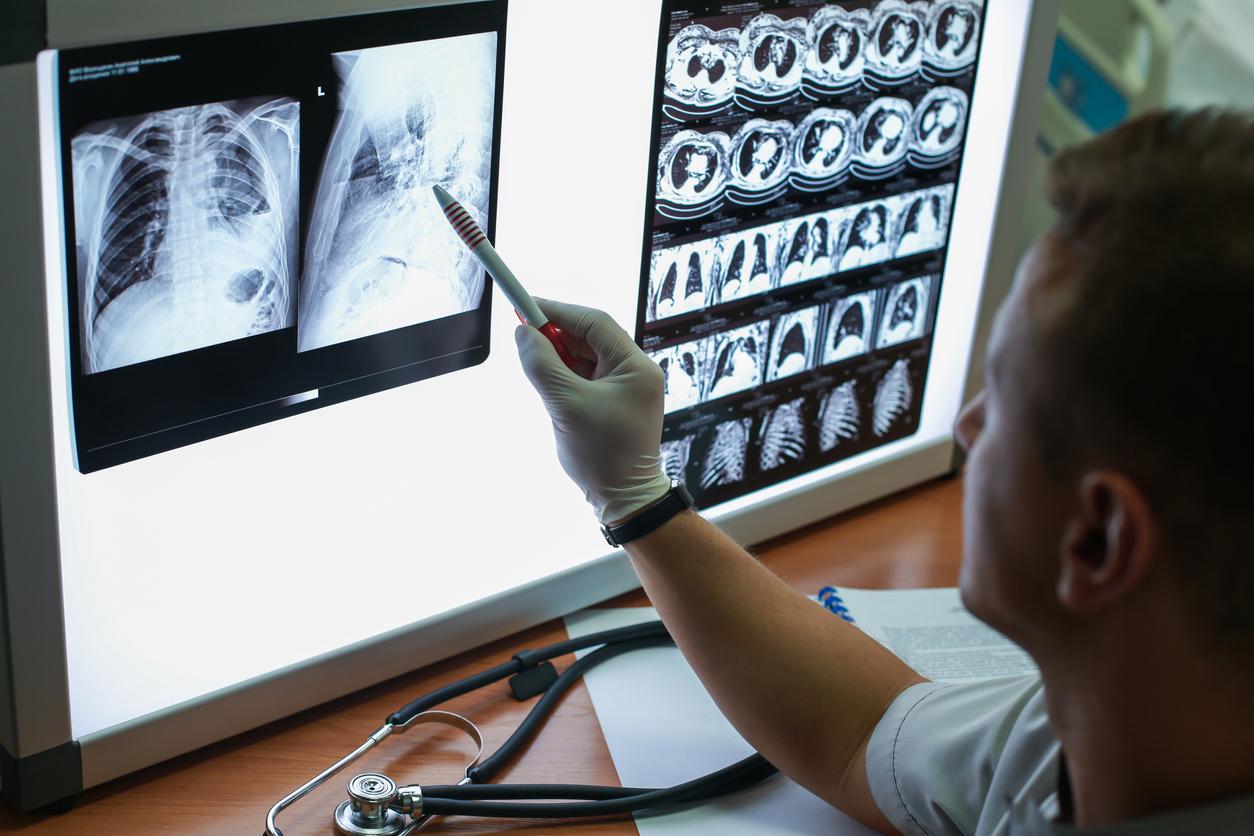According to a study, two years after being infected with Covid-19, some patients still have abnormalities in the lungs.

- Two years after a Covid-19 infection, more than a third of patients still have lung abnormalities.
- The authors plead for patients who have been affected by Covid-19 to be better monitored at the pulmonary level.
- To conduct their study, the researchers analyzed data from 144 people aged 18 to 80 who tested positive for Covid-19.
There were 4,236 new cases of Covid-19 in France as of February 18, according to Public Health France. Among them, some may have sequelae of this infection such as fatigue, shortness of breath, loss of taste and smell, etc.
Abnormalities in the lungs up to two years after Covid-19
In a study published in the journal Radiologyresearchers have discovered a new side effect of Covid-19: abnormalities in the lungs that persist, for some patients, for at least two years after being sick.
To conduct their study, the scientists analyzed data from 144 people aged 18 to 80 who tested positive for Covid-19 and were hospitalized for this reason between January 15 and March 10, 2020.
All had undergone a so-called chest computed tomography examination on admission to hospital. This is a scanner that provides accurate images of the inside of the body through the use of X-rays. In addition, the researchers excluded people whose lung pathologies were completely resolved at discharge. hospital and those with a history of lung disease.
Covid-19: anomalies decrease over time
So, at 6 months, a year and then two years, the researchers gave the participants chest CT scans and lung function tests. In addition, they also had to complete questionnaires to explain their respiratory symptoms.
Based on this data, the scientists were able to observe that some participants had residual lung abnormalities such as, for example, lung cysts. However, their incidence decreased over time. Thus, these abnormalities concerned 54% of patients at six months, 42% after one year and 39% after two years.
Thus, two years after being infected with the virus, more than a third of the participants had persistent lung abnormalities associated with respiratory symptoms and reduced lung function.
The researchers believe that more long-term follow-up should be done for patients who have had Covid-19, and especially those hospitalized, to check that they do not have lung abnormalities or, if they do, the monitor so that they do not progress to more serious pathologies.
















